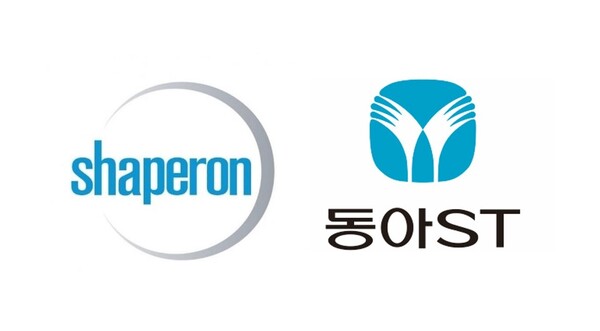Two Korean biotech companies, Shaperon and Dong-A ST, are making strides in the fight against Alzheimer's disease and will present their research at the Alzheimer's Association International Conference (AAIC) in Philadelphia, the U.S., from Oct. 28 to Nov. 1.
Shaperon said on Friday that it will present preclinical results for NuCerin, an oral dementia treatment under development. The company will also showcase its precision medicine technology, which utilizes blood-based biomarkers for a new companion diagnostic approach to dementia.

According to a Shaperon spokesperson, using blood biomarkers to diagnose Alzheimer's disease, rather than relying on expensive positron emission tomography (PET) and cerebrospinal fluid tests, has recently become a “global trend.”
The biomarkers Shaperon has discovered are not only applicable to diagnosing dementia but also to companion diagnostics for predicting the efficacy of therapeutic drugs. The spokesperson said this will be a “key technology to advance the treatment of dementia.”
NuCerin aims to preserve cognitive function by targeting neuroinflammation. The drug works by inhibiting the production of inflammatory cytokines induced by amyloid beta accumulation in the brain, blocking the activation of the NLRP3 inflammasome via the GPCR19-P2X7 regulatory mechanism, thereby preventing neuronal death. This dual-action approach targets both the early and activation stages of brain inflammation, offering a multifaceted pathway to prevent further memory loss and neuronal damage.
In behavioral tests, Shaperon observed significant improvements in cognitive function after administering NuCerin to a mouse model of Alzheimer's disease. The results showed that NuCerin activated microglia, the brain's innate immune cells, and reduced neuroinflammation by inhibiting the accumulation of amyloid beta plaques.
Additionally, Shaperon has identified a companion diagnostic biomarker for NuCerin through blood proteome profiling, which can predict the drug's efficacy. The company is currently investigating whether the biomarker can be used to evaluate the efficacy of NuCerin in patients with dementia. The biomarker has been found to be elevated in a significantly higher proportion of Alzheimer's patients than in healthy individuals, suggesting the potential reproducibility of non-clinical results in patients.
“NuCerin is currently in phase 1 clinical trials in Korea, and we are actively considering the application of blood biomarkers in phase 2 trials,” the spokesperson added.
Meanwhile, Dong-A ST will present a poster detailing the results of a non-clinical study of DA-7503, a tau-targeted therapy in development for Alzheimer’s disease. The presentation will highlight data demonstrating DA-7503's ability to enhance memory and cognitive function in animal models of Alzheimer's disease and tauopathies, inhibit tau aggregation and phosphorylation in the cortex and hippocampus, and reduce tau levels in the cerebrospinal fluid, a key pathogenic factor in Alzheimer's disease, the company said on Friday.
Tau is a microtubule-associated protein responsible for assembling and stabilizing the structure of neurons. In pathological conditions like Alzheimer's disease, modified tau detaches from microtubules and forms insoluble aggregates known as neurofibrillary tangles (NFTs). DA-7503 is a small molecule designed to inhibit tau aggregation, targeting isolated and modified tau to prevent oligomer formation and reduce intracellular accumulation.
In April, Dong-A ST received approval for the Investigational New Drug (IND) application for DA-7503 from the Korean Ministry of Food and Drug Safety (MFDS). The company began a phase 1 clinical trial in May to evaluate the safety, tolerability, and pharmacokinetic characteristics of DA-7503 after single and repeated oral administration in 72 healthy adults and elderly subjects.
A Dong-A ST spokesperson said the results from the company’s non-clinical study revealed a promising trend. “We observed a dose-dependent reduction in tau levels in the cerebrospinal fluid as the concentration of DA-7503 in the blood increased. This suggests that DA-7503 may have a significant potential for removing tau, which could be a key factor in combating Alzheimer’s disease.”
Related articles
- Shaperon partners with Sadick Research Group to develop advanced dermatology products
- Dong-A ST’s Q2 operating profit falls 19% on year due to smaller prescription drugs sales
- [Interview] Navigating dementia and health through Korea’s cultural lens
- [BIO USA 2024] Korean biotech giants take center stage at BIO USA 2024
- Shaperon enrolls 1st patient for phase 2 study of atopic dermatitis drug NuGel in US
- Korean researchers develop AI to predict early-stage dementia through speech analysis
- SCL launches blood test for early detection of Alzheimer's disease
- Eisai launches Alzheimer’s treatment Leqembi in Korea
- Shaperon’s successful phase 2 trial results raise hopes for new atopic dermatitis drug

